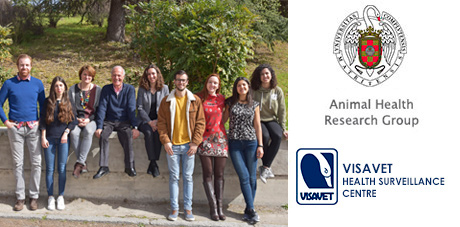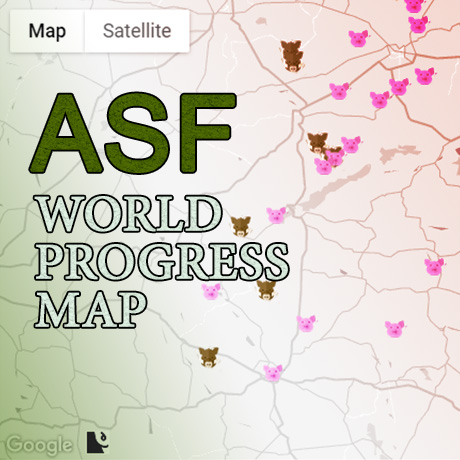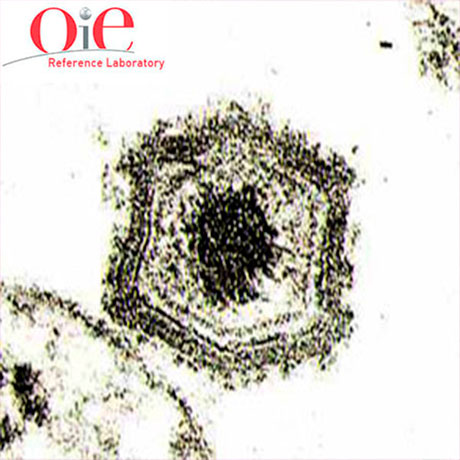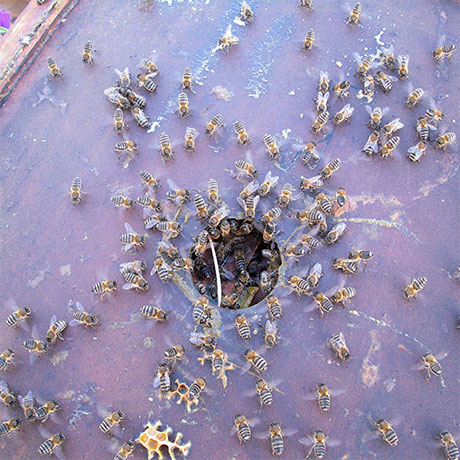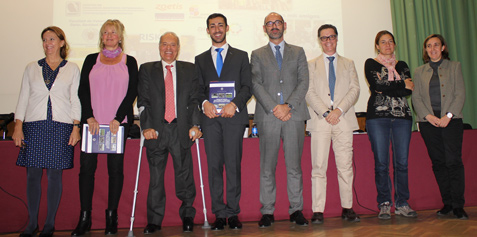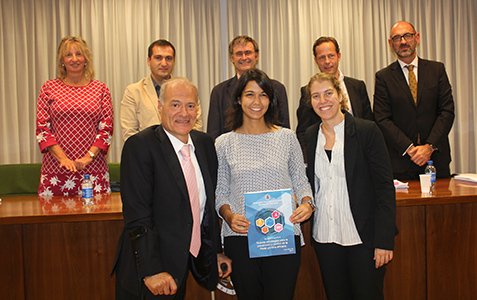International Fund for Agricultural Development new project
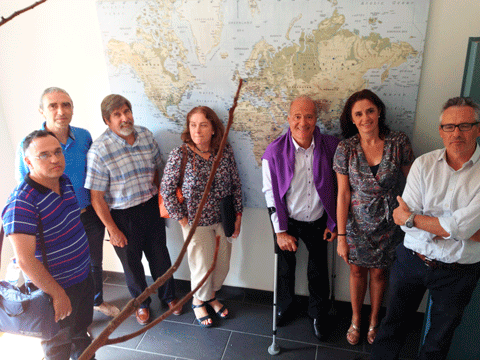 A team of researchers from the Universidad Politécnica de Madrid (UPM) and the Universidad Complutense de Madrid (UCM), through their research centers, CEIGRAM and VISAVET respectively, under the umbrella of the Moncloa Campus of International Excellence (Moncloa Campus), collaborate in a project for the International Fund for Agricultural Development (IFAD) entitled "Assessment of Agricultural Informational Information Risk Management Systems (ARM-IS) in the following African Countries: Cape Verde, Cameroon, Ethiopia, Mozambique, Niger, Senegal and Uganda. "
A team of researchers from the Universidad Politécnica de Madrid (UPM) and the Universidad Complutense de Madrid (UCM), through their research centers, CEIGRAM and VISAVET respectively, under the umbrella of the Moncloa Campus of International Excellence (Moncloa Campus), collaborate in a project for the International Fund for Agricultural Development (IFAD) entitled "Assessment of Agricultural Informational Information Risk Management Systems (ARM-IS) in the following African Countries: Cape Verde, Cameroon, Ethiopia, Mozambique, Niger, Senegal and Uganda. "
The aim of the project is briefly summarized:
The purpose of this study is to investigate the availability and quality of information for agricultural risk management purposes in a set of African countries. The approach will be holistic, covering all sources of risks in agriculture, in particular risks from weather and climate, production, prices and markets, plant, animal and human health and policy. The study will cover information at different levels of aggregation: from information at individual farm or household level to information at country level.
Information is the key input for any risk management activity. Without appropriate information farmers cannot identify their main risks and select the appropriate tools to manage them, and governments cannot design their agricultural policies and respond to risks with preparedness. Lack of reliable information also discourage private sector investments or the cost to protect them is so high that the final product is not affordable for smallholders. Weak information systems will lead to wrong investments and ARM decisions.
The main focus of the informational assessment will be on the existence and timely access to information about agricultural risks in each country. The information on risks takes the form of measurements of variability over time in the main variables affecting production and markets, or the frequency and damage caused by shocks. It can also take the form of early warning information of major events or changes in trend. Most of the underlying information required to develop these risk related indicators is also useful for many purposes beyond risk management. Information Systems will be useful for agricultural risk management purposes to the extent that they provide information about variability overtime, shocks or changes in trend, or, at least, they allow to estimate them.
Dr. José Manuel Sánchez-Vizcaíno conference
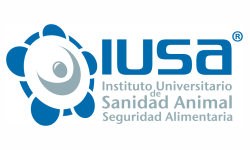 The next 16th of December at 12:30pm there will be a conference on innovation in research for Animal Health. (Advances in R&D) entitled "Globalization and Animal Health - Public Health" organized by the Campus of Excellence of the University of Las Palmas de Gran Canaria.
The next 16th of December at 12:30pm there will be a conference on innovation in research for Animal Health. (Advances in R&D) entitled "Globalization and Animal Health - Public Health" organized by the Campus of Excellence of the University of Las Palmas de Gran Canaria.
Read the new in the Instituto Universitario de Sanidad Animal y Seguridad Alimentaria website
Víctor Rodríguez Prieto PhD defense
Victor Rodríguez Prieto PhD Thesis
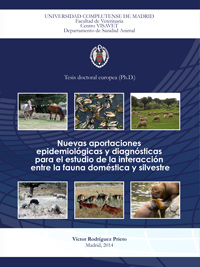 On thursday November 6th Victor Rodríguez Prieto defend his Doctoral Thesis entitled "New epidemiological and diagnostic tools for the study of the interaction between domestic and wild animals" directed by José Manuel Sánchez-Vizcaíno and Joaquín Goyache Goñi.
On thursday November 6th Victor Rodríguez Prieto defend his Doctoral Thesis entitled "New epidemiological and diagnostic tools for the study of the interaction between domestic and wild animals" directed by José Manuel Sánchez-Vizcaíno and Joaquín Goyache Goñi.
Date: November 6th, 12.30 am.
Venue: Sala de Grados, Veterinary Faculty of the Complutense University of Madrid
Abstract:
Wildlife diseases have become increasingly important due to the role of wild animals in infections of major impact on animal and public health, as well as in environmental management. The scenario where wild animals inhabit has changed in recent years, mainly due to anthropogenic factors, which have promoted the creation of situations of interaction between wildlife and domestic animals and/or humans. Considering this human-domestic-wildlife interface (HDW interface) when managing infectious diseases is the best way to cost-effectively allocate resources and achieve an adequate health status.
This thesis entitled New epidemiological and diagnostic tools for the study of the interaction between domestic and wild animals intends to develop, integrate and apply different epidemiological and diagnostic methods focused on various infectious diseases used as a model to study the Spanish HDW interface. Its aim is to cover various types of diseases (i.e. new, exotic and endemic diseases) as well as several hosts (i.e. wild ungulates, wild birds and zoo animals). The work developed in this thesis consists of six papers published in journals of international impact and one in preparation, describing epidemiological models, diagnostic methods, immunological studies and experimental challenges, all of them preceded by an extensive literature review.
The articles included in this thesis describe methods and results that are innovative in the field of infectious diseases and wildlife. They also serve as a model for other diseases, wild species or regions with similar epidemiological features. All the issues raised in this thesis can have direct application to surveillance and control of diseases in wild populations, especially those transmitted in the HDW interface, whose inclusion in comprehensive plans for health management is becoming increasingly paramount.



